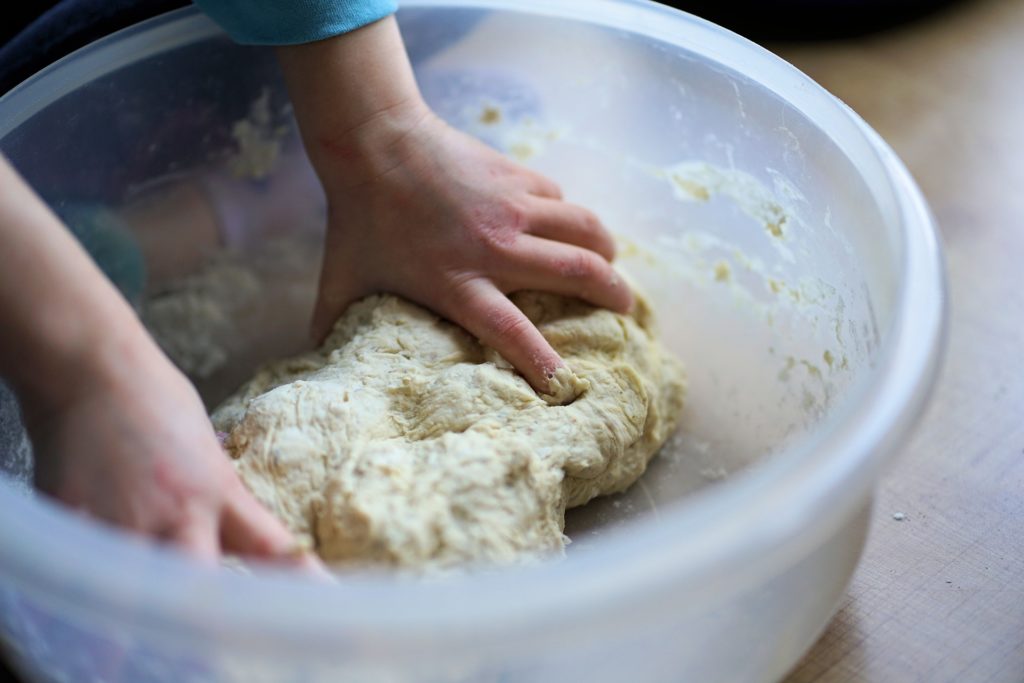Wild Wonders | Saturday, April 27

Wild Wonders | Saturday, April 27

By Alix Tonsgard, MS, Early Learning Specialist, DuPage Children’s Museum
I start my day at the office early. I love the quiet stillness of the morning and find I do some of my best thinking in the early morning sunlight. For the most part, this thinking time takes place at my desk, but sometimes I like to wander the empty museum as I think, and other times I go play in The Studio while the day’s activities are being prepared.
One such day I was greeted by homemade play dough in an array of vibrant colors. As a bit of a sensory seeker (someone who is drawn to sensory experiences), I had to poke and squeeze and knead each color. I also happen to know that no two of Dustin’s (our Arts and Maker Specialist) doughs are ever alike. Dustin and I share the same enthusiasm for ditching the recipe and embracing the process of experimentation. Serendipitously or coincidentally, on that morning I had been thinking a lot about failure, which is a frequent topic here, and it seemed fitting to frame it around the power of forgetting the recipe.

If you Google homemade play dough, you will find recipes for scented, no-cook, glossy, extra soft, and hundreds of other varieties. In my early years as a preschool teacher, I tried many of them in my classroom, and of course we always learned a lot and had a blast. I would let the children help to carefully measure 1 cup of this and 1 teaspoon of that, we would talk about the properties of the ingredients and how they changed throughout the process, and finally we would play.
Then one rainy day, when the children were requesting my standard, old faithful, plain dough, I couldn’t find my recipe. I had all of the ingredients and having made it countless times, I decided we should just go for it. We started with our base, a good amount of flour and a little less than that of salt. Next we added a splash of oil and water. We dug our hands in and started kneading.
As we kneaded, we talked about what it felt like – did it feel the way we thought it should? It didn’t, so we started adding a splash of this and a dash of that. Sometimes it was too sticky, sometimes it was too dry, until finally it was just right. Some might read this and think that this is just about a group of children mucking about, which on the surface level it was, but if you think more deeply about all of the steps of this process, you begin to see that it was so much more.
Throwing out the recipe promotes the same things that designing exhibits for failure does. It prompts children in a safe environment to experiment, to problem solve, to create and test a hypothesis, to think critically about why something didn’t work and what approach might be better. This is higher level critical thinking at its finest.
This cannot be stimulated with a worksheet or an activity that requires following exact step-by-step instructions. This is what authentic learning is. This is how objects like iPhones are created. The ability to be curious, confident, and persistent in playing with ideas is the greatest gift you can give a child, and it is what we strive to achieve in everything that we do here at the Museum.
——————————————–
About Alix
Alix Tonsgard is the Early Learning Specialist at DuPage Children’s Museum. She holds an MS in Child Development from the Erikson Institute. Acting as the Museum’s advocate for early childhood development and learning, she ensures that the latest research in Early Childhood Education is represented in all Museum exhibits, professional development initiatives, and public programs.

